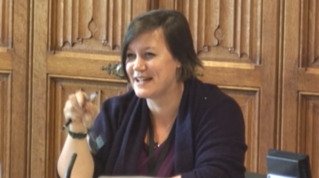Dozens of schools used government-funded academic mentors to provide teaching cover last year.
The academic mentors scheme is one of three pillars of the flagship National Tutoring Programme (NTP). Last year, 1,124 mentors were placed in 946 schools across England to support more than 100,000 disadvantaged pupils.
According to the government, mentors are supposed to support “one-to-one and small-group, subject-specific tuition”, as well as revision lessons and “additional support for pupils shielding or not in school”.
But a report by Teach First, which ran the scheme in 2020-21, said that during “particularly high” staff absences in November and December, “some schools” used mentors with qualified teacher status to “provide teaching cover”.
During school closures between January and March academic mentors were also “redeployed to assist with teaching of key worker and vulnerable children attending school”.
Teach First said about 20 per cent of schools – about 190 – used their academic mentors “in a teaching or teaching assistant (TA) capacity”.
Some reported that they were deployed this way because staff “had not fully understood the programme expectations or role of mentors”.
One said the role was “poorly defined” and led to “confusion”. Another said they “did not do what I signed up for – teaching small groups and one-to-ones”.
Schools faced ‘real extenuating circumstances’
Teach First said that while mentors covering teaching or TA duties was not in its agreement with schools, “most justified it as a necessity due to high levels of staff absence caused by illness or isolation”.
The charity pointed to “real extenuating circumstances last year throughout the pandemic, which put a huge amount of pressure on schools”.
But Lee Elliot Major, professor of social mobility at the University of Exeter, said it was “concerning” that mentors had been used to teach classes. He said an independent review of “all aspects” of the tutoring programme was needed “urgently”.
Teach First said future providers of the scheme should “monitor adherence with greater clarity around the exceptional circumstances under which it is acceptable for schools to use mentors in unintended ways”.
The charity confirmed the report, quietly published last week, had been passed to Randstad, which is responsible for the NTP in its second year.
Mentoring beat targets in first year
The academic mentors’ arm beat its target of recruiting 1,000 mentors and reaching 50,000 pupils last year, and ministers said this week that interest this year was “increasing”.
However, Randstad’s management of the tuition partners has been criticised as it emerged just 43,000 pupils have started tutoring so far this academic year, against a target of 524,000.
Meanwhile, a group of tutoring charities is due to meet to discuss forming an alternative not-for-profit provider to challenge Randstad for the NTP contract at the end of this year.
Nick Bent, the chief executive of the Tutor Trust, told MPs that Nadhim Zahawi, the education secretary, should “look seriously at the question of whether he should exercise his break clause in the contract with Randstad”.
A meeting with Zahawi has been set up on January 19 to talk about “issues and solutions”.
Providers have also warned of a lack of marketing to schools. Bent said he had attended webinars for whole regions “where literally only a dozen schools have been present”.
Another provider, who did not want to be named, said more schools were opting for school-led tutoring grants, rather than tuition partners, so they “do not have to engage with burdens of the central platform provided by Randstad”.
Another provider said it was already delivering school-led tutoring and tuition partners on a 50-50 split.
“We’ve only had one new school contact us through the NTP platform this year, compared to around 30 at the same stage last year. [There’s a] concerning lack of interest.”
Randstad ‘working on’ marketing
Randstad told Schools Week it was confident in its ability to lead the programme and was working “very closely” with tuition partners “to ensure we deliver an ambitious and high-quality programme at pace”.
The firm said it had also asked tuition partners to help with testing of its technology platform, and had organised sessions with partners and its technical team to help them with it. The company is also working on marketing and communications to drive engagement.
A Department for Education spokesperson said the NTP was “on track to reach hundreds of thousands more pupils this year”.
“We have set high standards for the programme and feedback from schools shows the positive impact it is having in helping pupils to catch up.”









Your thoughts